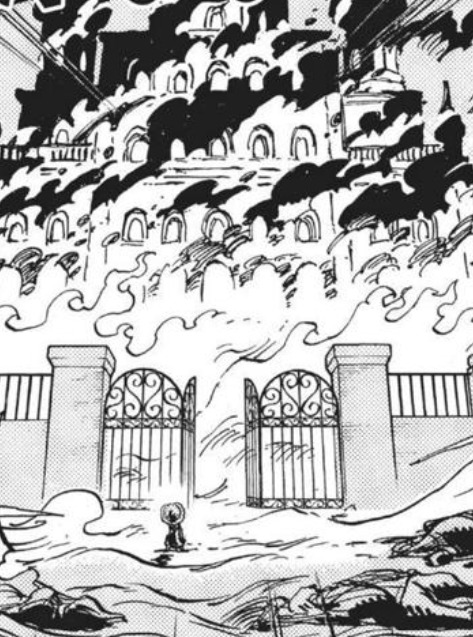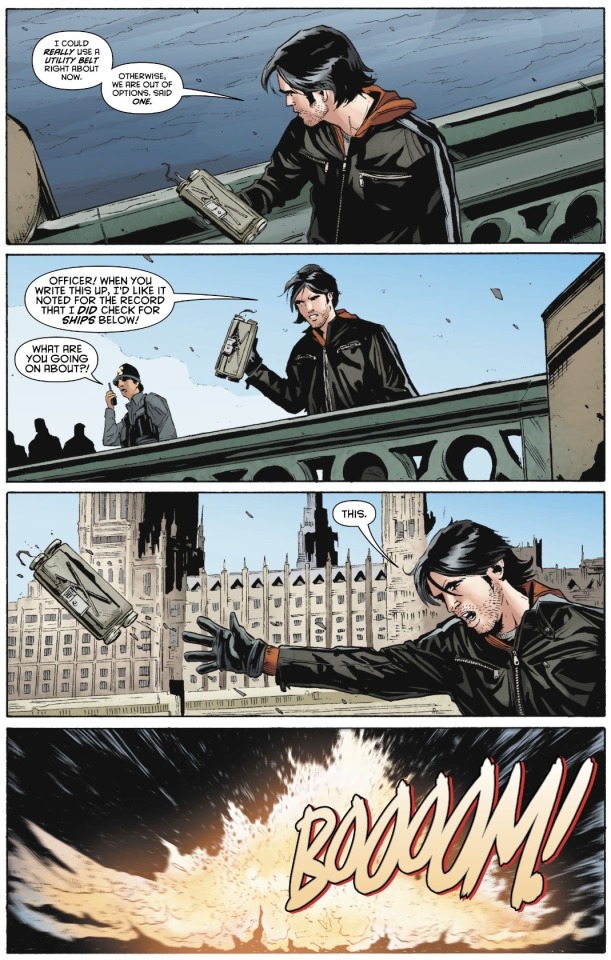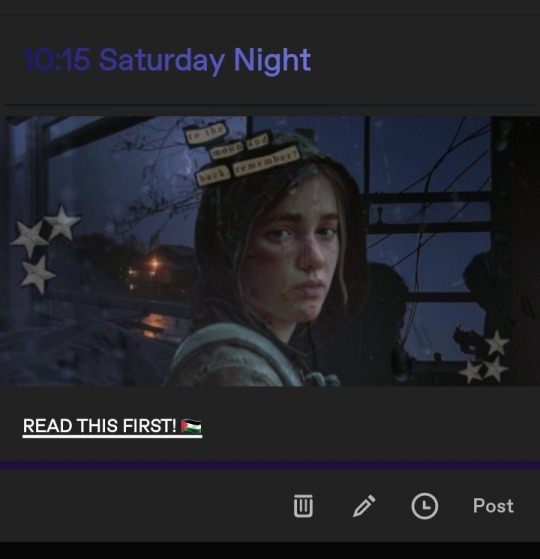#words from the inside
Text
""That's right, pal," says Number Seven. "And take it in these shops. If they'd even teach a guy a trade - make him learn a trade you wouldn't mind. Then a guy would have something to fall back on if he felt like hitting the straight and narrow. But what do they do? They put you to work making automobile plates, or something that's only done in prisons; stuff you couldn't get a job at outside if you wanted to; and the machinery is all twenty years out of date; and the instructors don't know anything about up-to-date methods; and the materials you get to work with are so lousy that you can't learn to do decent work even if you want to. Here I am. I've been working in the shoeshop for five years. What good will that do me? In the first place, the work I'm doing is done by women and children outside; it don't pay any- thing; and if I tried to get away with the lousy kind of work I've been taught to do, I wouldn't last two hours in an outside shop. The print shop is the only shop in here where a guy could learn a decent trade; but Christ, there's only room for forty guys in that shop, and you have to be a high-school graduate to get in there. That don't do the rest of us any good. There's a thousand men here, and only room for forty or so over in the print shop. And not only that, but So-and-So was always threatening to close the print shop because it didn't show enough profits. That's all they think about here. They damn about us learning a trade; all they is having the industries show a profit!"
"And take a guy when he gets out of here," says Number Ten. "Times are lousy outside. Even guys who know their trades, guys that can get swell references, can't get a job nowadays. And if they can't get work, how in the name of Christ are we going to get it even if we want it? And the jobs you can get don't pay anything - not enough to live on. A guy might better be in here than out there starving to death. How the hell is a guy going to live on twenty-five or thirty bucks a week, especially if he's married?"
- Victor F. Nelson, Prison Days and Nights. Second edition. With an introduction by Abraham Myerson, M.D. Garden City: Garden City Publishing Co., 1936. p. 213-214.
#words from the inside#prisoner autobiography#prison industries#released from prison#prison labor#failure of rehabilitation#american prison system#prison routine#prison days and nights#victor nelson#history of crime and punishment#convict labour#reading 2024
72 notes
·
View notes
Text



















you think YOU had a bad day at work?
bonus: sid shrieking "no!!!! NO!!!!!" loud enough to be heard in the stands and on camera
#this is now my FAVOURITE game i've watched in real life knocking the game misconduct one off the number one rank#he was so annoyed the entire game and so annoying about it :')#he kept shrieking away on the bench and i couldn't hear a word from where i was seated#but you could just hear this constant yipping away dhfsgfkjshgfsjf PLEASE it was so funny your 36-year-old babygirl was BARKING#drew kept sitting there like... is mom okay... i don't think mom's okay...#also extremely good for me (since he wasn't really hurt) was the whumpfest of it all oh my god what ancient gods did he anger.........#geno kept Hovering in concern#po kept giving him little shoulder pats the way a sweet brave babyboy would try his best to soothe a rabid little dog#ek of course kept trying to slide right inside him and also kept skating up to him and STARING him in the face in concern/lust/both#also guys this is my first time in canada ever!!!!!!!! i'm excited#anyway. very good game for me sorry for this post but you know i love a#long post#sidney crosby#evgeni malkin#pittsburgh penguins#also!!! to all who celebrate#ramadan kareem/eid mubarak#<333 staying with a friend here through the eid celebration and they've been cooking and everything smells so good
1K notes
·
View notes
Text
Honestly tho I think the most frustrating thing about leftist spaces is the refusal to tackle the hard questions, the refusal to say "I dont know", accusing anyone of asking a difficult question of not being genuine and also outright lying about how things currently work to justify their fantasy about how they want the world to work.
#yes this is mostly me complaining about prison abolition discourse again but it applies to other things too#obligatory 'i am a leftist'#the call is coming from inside the house#word of god
857 notes
·
View notes
Text
Thinking about the weird camaraderie that exists between demons but not angels in GO.
Have we ever seen two angels who are actually friends? Or even friendly to one another? We have met angels with a capacity to be friendly in general, but I think the closest we've come to two angels actually getting along would be Gabriel making a point to laugh at Sandalphon's terrible "can't have a war without War" line in S1.
Most scenes between the angels actually seem to have an undercurrent of absolute hostility. Teeth-clenched teamwork. No wonder it took them so long to notice that Aziraphale wasn't on the same page as the rest of them! The rest of them are barely on the same page as one another, either! When Gabriel goes against the majority vote, no one bats an eye at demoting him and wiping his memory. Michael and Uriel immediately begin vying for his job. The only times we've seen angels team up is when they're working together to bully someone else, like when they're trying to intimidate Aziraphale in S1 or going to the aftermath of the bookshop raid in S2.
Saraqael's overall neutrality towards Muriel is the closest we get to two angels in Heaven getting along, and it's more a lack of hostility than any kind of friendliness. At least until Gabriel loses his memories and Muriel shows up to spy on Aziraphale, and Aziraphale decides to be kind to both of them.
Demons, on the other hand, actually seem to form alliances and even friendships among one another. Hastur and Ligur are awful, but Hastur seems genuinely distraught over Ligur's death, not just fearful of suffering the same fate. Shax and Furfur conspire together and even though the 1940's investigation into Crowley's fraternizing doesn't work out for Furfur, it's not due to any double-crossing on Shax's part. Unlike the angels, who stick almost exclusively to making threats until the Metatron decides to try dangling a carrot at the end of the season, demons actually offer rewards to other demons when trying to work together. Beelzebub offers Crowley a promotion if he can bring them Gabriel, Furfur offers to back Shax up politically if she goes for the Duke position opening, and Crowley successfully stalls Hastur in S1 by pretending everything was a test and he's going to be put in charge of a legion as a reward for passing. They're still not great at socializing, but they're significantly ahead of the angels.
Of course, it's a fact that demons are awful to one another (Eric's treatment is really bad, they throw that random demon into holy water just to test it, "it'd be a funny world if demons went around trusting one another", etc) but they still seem more capable of forming friendships than the angels do.
I think that's because Hell cramps and crowds everyone together to try and increase their suffering and hostility, whereas Heaven isolates angels to decrease the odds of questioning or rebellion. Hell's methods are unpleasant, but it still ends up putting demons together, and some of those demons inevitably forge alliances and make friendships. Because as Crowley and Beelzebub demonstrate, demons are still social creatures with the capacity for love and affection, even if it's strongly discouraged and buried under nine million layers of trauma and a cultural mandate against kindness.
Angels are the same, but isolation makes is harder to form connections than overcrowding. Muriel and Jimbriel are both so eager to make friends, but Muriel's spent the past millennia shut in an empty office, and Gabriel has been distanced from his peers both through his position and also through Heaven's culture of fear and surveillance. He only breaks away from it when he finds something that's stronger than "choosing sides" (stronger than the fear of being rejected by Heaven and Falling, in fact strong enough that Falling seems worth it if he gets to be with someone he loves). Both Muriel and Gabriel are only able to start forming connections when they're away from Heaven.
I just think it's interesting that demons, despite being supposedly devoid of love, have an advantage in forming relationships compared to angels. Angels are supposed to love, but have far fewer opportunities to actually do so. Demons aren't supposed to love, but they make connections anyway.
#good omens#ineffable bureaucracy#both angels and demons are suckers for a bit of kindness too#even if they pretend otherwise and even if there are exceptions to the rule#like yeah you're probably not gonna win over the likes of hastur or michael with a nicety#but according to word of god furfur would be highly susceptible to a kind word#and well we see how it is with muriel and jim#i think this is why shax also weirdly toes the line between getting crowley destroyed and being almost-friends with him#that's just how it works in hell when you don't actually despise somebody#you can't be nice to them but you're still also kind of helpful and non-hostile a lot#don't let it interfere with your goals but sure deliver their mail and get their help with your boiler issues why not#maggie took the wrong approach to confronting the demons#if she'd been nice instead of telling them off they wouldn't have known how to handle it i bet#they're USED to being mocked and yelled at#should have given them jim's tray of canapes and offered them tea and stuff#not that I expect anyone to intuit that under the circumstances just that it might have actually held them off a lot longer#bunch of demons sitting outside of a bookshop passing around a tray of tiny little dinners and listening to records playing from inside
567 notes
·
View notes
Text

Probably the most powerful expression Oda drew on Law because how many times have we seen him so broken and desperate. That's a boy who lost everyone within a single night along with his faith in humanity - spilling out his heart in front of a total stranger just so he can somehow evade re-experiencing this pain:

And this time it struck him worse . Now there's guilt along with grief because he brought the grim reaper to Cora himself.
Vergo is now dead and Doflamingo in Impel Down - but this isn't something you heal from in lifetime.

Years after, same story. Oda struck the same wound again, took away his sword and hat while at it, then left him in salt water.
#so. today marks a year since law was last seen in the manga#I saw the law crying panel on twitter and teared up because theres no way he isn't going through that exact feeling deep inside rn#a devil fruit user. suffocating under water. wounds exposed to salt. exactly what he's going through inside and out#1 am feels#OK feels aside. for law to 'proceed by himself' he needs some words of assurance that his crews aren't dead or captured by BB#since we saw akainu receiving the news - it's possible that HP are arrested and Law will get their updates from newspaper#one piece meta#mine#trafalgar law#trafalgar d. water law#donquixote rosinante#one piece heart pirates
170 notes
·
View notes
Text
so about the header that proceeded today's statement:
Viability as agent: Low
Viability as subject: None
Viability as catalyst: Medium
i didn't know what to think of this part of the entry at first, but the longer the statement went on... was the institute in this universe trying to manufacture avatars?
the dice can't do anything without someone to use them, they can't be an "agent" by themselves, but might be capable of manipulation, so in that aspect their viability is "low."
the dice could be a "subject" in the sense that they could use further studying, but the statement itself was a very thorough investigation of their workings, so in that aspect their viability is "none."
the dice seem to influence their holder to roll them, or at least find more victims to roll them, and could therefore be described as a "catalyst" for someone's becoming. but, as seen in the statement, their owner can give the dice to someone else (albeit not without consequences), so in that aspect their viability is only "medium."
so what about the line following all this, what does "Recommend referral to Catalytics for Enrichment applicability assessment" mean? if we go by this interpretation, i'd say it could mean the institute wanted to find a way to make the dice even more potent as an artifact, maybe even remove that pesky ability for their owner to reject them.
imho all of this this brings a whole new level of context to the events of episode seven, of unknown violent agents going after an influx of objects that seemed straight out of artifact storage. was that the nature of the titular "magnus protocol" first mentioned in episode four, the one that involved the starkwall group? containing or destroying potential artifacts before the institute could get their hands on them?
it also makes their "gifted kids program," and sam's link to it as one of the kids being studied, all the more horrifying to think about. was it not just avatars in general they were after, but child avatars specifically? no wonder gertrude got so defensive over the possibility of sam and celia dragging gerry back into the institute's business last episode, we all picked up on her clearly knowing more than she's letting on but now we might know the shape of that information a bit better.
and one final bit of food for thought... this statement had a lot of familiar themes, didn't it? free will or the illusion of it, gambling and not-so-random chance, the statement giver being done in by one final hit from what feels like a bit of an addition... all hallmarks of a certain mother of puppets. doesn't it seem fitting that "chester" would use this kind of statement to warn sam about what harm pursuing the magnus institute could bring to him, considering the one his voice might draw from? and doesn't it seem so painfully ironic that his warning seems to have only driven sam further into that web?
#tmagp#the magnus protocol#tmagp spoilers#tmagp 9 spoilers#MANY THOUGHTS HEAD FULL AAAAAAAAAA#there are so many other things i want to link to this but i also just want to post it asap to get other people's thoughts#honestly at the word 'catalyst' my mind went straight to mike crew using ex altiora to become an avatar of the vast#combing through lietners until he found one that fit#and the statement giver from mag 4 feeling like he had to specifically sell ex altiora to gerry or it wouldn't 'count'#i can't pull out the episode quotes every time i have a theory or it becomes a bit passé but know they are always on my mind#also that last paragraph just came to me in a vision while i was typing up the rest of this i hope it's not too far of a reach#i tried to keep it vague but i'm also imagining jon banging his head against the inside of a crt monitor in frustration r/n#i still need to read the breakdown of the arg so if any info in that bolsters or discredits this please let me know!!!
303 notes
·
View notes
Text
ah fuck it fuck everyone gonna do a quick try at that de two birds on a wire thing with only scribbles my blood will electrocute me if i don't do it im afraid
#adhd feeling when every chemical in your body is like doitdoitoditoitodi thats the impulsive symptom baby DFGHJDK#now ill be extremely real w you that i havent dissected nor read everything about de from the inside out#so i will going on with the very limited knowledge i have bc this game has like a bazillion words and i probably only know 400k of them DFG#FUCK IT WE BALL
218 notes
·
View notes
Text
Amazing news!!!!!!!!! :3

The boy has come home!! :’D

He’s gonna hang out with his best friends forever and cause so much mischief <3
Check out the plush maker Facade’s Twitter and Insta <3
Well, she made Cardigan, my puffball on the left, and Elfilis. She did not make Benjamin Daniel Dee on the right- but he’s a part of the friend group heheheh
#I’m too happy to even put into words :D#on the outside I seem calm on the inside I’m INCREDIBLY HAPPY!!!!#my child….. the them…… I can hug them now :)#he’s gonna have a pic in my wallet#I’m gonna bring him up from time to time if that’s cool alfjaknfka#Elfilis#irl content#custom plush#kirby series#forgotten land roleswap#roleswap scraps#Benjamin Daniel dee
122 notes
·
View notes
Text
hot take, but if you can't enjoy even casual H x P inspired romance stories made for fun without justifying or defending your enjoyment of it with "well ACTUALLY these stories are MORE accurate because Persephone WANTED to go down there, she LIKED it in the Underworld!" then you sound like an out-of-touch adult intentionally omitting/changing facts to scrub the story down for a 5 year old who you know won't question you
and that's not okay ~
#and yes this is mostly about lore olympus but it can apply to other modern 'retellings' as well#it's okay if you like the fun H x P stories that are purely fluff or cutesy stories!#just don't get so swept up in the fun of it that you think it's fact or claim that what you like about it aligns with the source material#there is literally no 'older scripture' that depicts persephone going down to the underworld willingly#she was kidnapped#and if that makes you feel gross inside#GOOD#it fucking SHOULD#that's the POINT#“fanfiction” is not a dirty word#enjoy the stories that play with the source material all you want!#just please don't use that fanfiction or inspired content as source material#respect where these stories come from and what they mean to the cultures they're written from#lore olympus critical#lo critical#anti lore olympus
168 notes
·
View notes
Text
"Thus, the declared purpose of modern prison reform, one gathers, is: To make the prison an institution which will reform the criminal.
As I sat in my cell, year after year, reading the articles, books and speeches in which the penologists were enunciating this doctrine, I waited eagerly for some sign of change in the actual administration of the prison. But nothing happened. I waited in vain.
For I am obliged to record the fact that, during the years I spent in the state prisons of New York and Massachusetts, not a single attempt was ever made to reform me, and that I did not see a single attempt officially to reform criminals as an aim of prison administrative policy.
I remember, in this connection, talking one day with the late Thomas Mott Osborne about the prison-reform movement. He said, among other things: "It is so discouraging. People flock to the meetings; they are remarkably sound in their responses; the shocked, moved, indignant at the right moments; they applaud vigorously; they come up to the rostrum after the meeting and offer their money and services; and then they go to their homes and forget all about it. They simply will not do anything."
For a time I was inclined to accept this explanation; that people in the outside world are simply indifferent about prison conditions. But lately I have been persuaded that it is not mere indifference, but actual satisfaction with existing conditions, which is responsible for society's delay in changing the prison "from a human scrap-heap into a human repair-shop." It must be, I have decided, that the majority of people still believe in the ancient doctrine of "an eye for an eye, and a tooth for a tooth," and regard the prison as the place where the criminal shall expiate his sins.
If, therefore, the real (as it is the declared) object of imprisonment is the reformation of the convict, then, as matters stand at present, the American prison is a most abject failure as a social institution.
It is banal to state that in order to fulfill the reformation purpose the prison environment must be greatly altered. Yet, whenever any attempt is made to do so, there instantly arises a loud and persistent chorus of criticism, mainly from the daily press. The cry of pampered criminals, "men's clubs" arises and feeds the average law-abiding citizen's hatred of the criminal.
This is not to say that the criminal should be pampered and petted, or that the prison should be made a cross between a night club and a health resort. Neither is it to say that the prison should remain a steel-barred stone coffin, as it continues to be in most states. It is simply to say that before the prison can achieve its object many substantial changes must be made; and that it will be well for the arm-chair critics, who create such a disturbance at each attempt to make such changes, to realize that their prejudiced criticisms are of great harm, in the end, to that society of which they themselves are a part. For not until these changes are made will the prison be able to transform the criminal into the citizen."
- Victor F. Nelson, Prison Days and Nights. Second edition. With an introduction by Abraham Myerson, M.D. Garden City: Garden City Publishing Co., 1936. p. 42-45
#words from the inside#prisoner autobiography#penal reform#penal reformers#middle class ideology#american prison system#law and order politics#prison days and nights#victor nelson#history of crime and punishment#rehabilitation#political corruption#reading 2024#failure of rehabilitation#thomas mott osborne#purpose of incarceration
7 notes
·
View notes
Text
Finally done with my version of The Universe's design!

#ariart#isat#isat spoilers#the creechur... btw the stuff written on their back veil are lyrics (chaos version) to fleeting words and beautiful song#they have a mouth. but itd be best for em not to use that. i like to think that the Universe communicates via telepathy#cuz if they use their own mouth itd be like an absolute order that cant be broken (like how wishes are granted via wish craft)#the rest of their body is meant like-- a tree trunk. cuz world tree and all that! also favour tree!#hollow stomach with a single floating star aaannd the lower part of the back veil is meant to be a butterfly when whole#yes those are two faces as well. drawing the lines for that nearly made me lose my mind a lil. the angle was painful...#it aint as obvious but the stars (egg and rectangle specifically) dangling on the front veil is morse code for i love you#also in a way the reason why i decided to make their middle pair of hands in that form is that inside their palm is the country#north of vaugarde. so its like theyre holding the country protectively. a star formed to keep anyone from lookin in!
70 notes
·
View notes
Text
Disco Elysium & Language
Okay okay so a bit ago I (foolishly) decided to (poorly) translate all 200-something pages of A Sacred and Terrible Air, despite having zero experience with Estonian whatsoever (so, you know, take what I’m saying here with a huge grain of salt).
There’s a small thing that gets lost in the translation from Estonian to English, the object of my obsession: The Pale
Its original Estonian counterpart is ”halli” (which essentially functions as “the gray” [a part of a whole], as opposed to “hall”, which is just “gray” [a color]). Hall and Pale are both used to describe the color of skin due to No Blood. They have similar connotations & uses.
Easy-peasy. Let’s look at the Chapter 15 title “Hallitus”. Hey, that looks kinda familiar, I see a “halli” in there.
First we gotta backtrack. Hallitus is just a noun derived from the verb hallitama.
Hallitama is built from “hall” (”gray”) plus -tama (suffix for making a noun in to a verb, generally means “to make”). So, hallitama would (should?) literally mean “to make gray” or “graying”. BUT! It actually means “to mold”. Like an apple being coated in a gray fuzz, hallitama is “to mold / to go moldy”. Oooh!
So “hallitus” means “moldy”. But it also, sorta, means “grayed thing”/”pale’d thing”.
So, we have this word that’s used to describe all sorts of manner of withering, decaying, frail, or dead things.
I don’t know, it tickles the brain.
#not art#disco elysium#rambling#the pale#a sacred and terrible air#And fruit within the pale is described as being especially vulnerable to its affects they go moldy.#and joyce talks about like fungal spores floating around inside of porch collapse#i wonder what that line from joyce is like in the original estonian#it drives me crazy!!!#i wish this book series had been finished I want to know more about the pale#i'm rotating this in my brain over and over and over#i think the english localization was done really really well#pale was the best possible word they couldve chosen#anyway very very sidenote#nothing makes you hate the word 'on' like translating shit#that words means too many damn things
615 notes
·
View notes
Text
There’s a general consensus that above all else Jason should be homicidal again. However I think what’s also very important is that he should be a fucking hoot.



There’s nothing not funny about this entire bit.
1. He couldn’t give less of a shit about explaining that he’s single-handedly trying to stop a terrorist attack. Obviously cause he’s short on time, but even if he had all the time in the world he would still be this indifferent towards explaining himself to cops.
2. This bomb is seconds away from exploding but he’s at most mildly annoyed like he’s in the office doing some menial task.
3. The perfectly timed British jokes.
4. Circling back to number 1 on the list. After he throws the bomb into the water he just dips. For all they know he’s the (weird) terrorist. (But as long as everyone’s okay he doesn’t care! The beauty of Jason Todd everybody).

This one is funny (but it’s also true)? Like yes … that is exactly what you are. (A sweet, kind-hearted goodboy learning how to effectively poison people, shoot guns, and blow shit up with all manner of explosives like a certified pro).
Bonus:


Red Hood: The Lost Days #5 (2010-)

Red Hood: The Lost Days #4 (2010-)
“Not so irritating for an American” is a far more impressive title than “genius” if you ask me. Although I think Jason balances both pretty well.
#lost days was actually a comedy it gets funnier every time I reread it#look I know in recent days he’s become more serious/glum as a character#he’s sorta detached from people and situations and he seems to have lost his spunk#and my mind is zoning in on Zdarsky. him feeling immense guilt and burden over people he kills.#which like. even Matt Murdock fans said Zdarsky leaned a bit too heavily into Catholic guilt lol#Jason should be like this again#boiling inside him is untamed rage and pain and hurt but the jokes keep rolling off his tongue in an endless stream#just as playful with his words as he is with his bombs and takeover plans#from moments like the bomb under the bridge or even just the 'nice boy' comment#you see just how much he not only doesn’t care about being labelled a hero for his actions but how he actively detests it even#it’s one of the things that makes him so endearing to me like: look at this humble kind kid who loves and cares for the world immeasurably#(even after all he’s suffered from it)#but refuses to ever take credit for it#jason todd#red hood#red hood: the lost days#lost days#dc
155 notes
·
View notes
Text
On the Jedi code: it frustrates me a bit how much the line “there is no emotion, there is peace” is misconstrued by people who have a superficial understanding of what the code is and what it is for. If you read that and think “how dare they invalidate my feelings, I have lots of important emotions, ignoring them is unhealthy and cruel!” you are not placing the words in the proper context. Think of the final line, “there is no death, there is the Force.” Death is obviously real, everybody dies, we know that to be true. To deny that would be to deny a fundamental part of reality.
So what does the line even mean? As I understand it, the code is about shifting perspective from the personal to the larger picture, stepping away and reorienting oneself with a clearer picture of objective reality. It’s a meditation tool to be able to remember you exist within a larger context and regain perspective about where you are inside that context. There are emotions inside each individual, yes, but in the Force as a whole, there is harmony and peace.
It’s not that your emotions aren’t valid, it’s just that they are a private, subjective, internal experience, and it can be helpful to remember that our reactions and feelings aren’t facts, they aren’t objectively true. If you remember the code when you are upset, it helps you process those emotions by comparing them with reality, and prevents you from acting irrationally. If you remember that the Force is always there and always peaceful, you can always find that peace when you look beyond yourself.
Again, death is real, everyone dies, but each individual death is a private experience. Taking a step back and remembering that the Force is eternal and undying, you can release the ego and find peace in the underlying stability and embrace of the Force. So yes, there ARE emotions, but internally. Externally, there is peace, and the Jedi code is a tool to help meditation, not an invalidation of anyone’s feelings.
The inability to see beyond yourself, denying the importance of objective reality in favor of your own feelings (“peace is a lie, there is only passion”) is a meditation that turns someone inward instead of outward, and strengthens the ego and encourages selfishness. It gives you permission to live in a world parallel to reality, where your story of grievance is fact, and not just a narrative in your mind. It gives you permission to hurt people in service of that narrative. It is the mentality of a Sith, and it is not something to be proud of.
#i’ve thought about this a lot#and find there to be actually a great deal of wisdom#locked inside those words#that are so easily misread#it’s a shame#sw#sw meta#i love the jedi#i practice both insight meditation and CBT#if you want to know where this is coming from#it’s coming from a combo of those
2K notes
·
View notes
Text

i wanna show yall this rn because i'm excited about it tbh...it's gonna be cheesy and fluffy and silly. (can you tell i have way too much fun in picsart- that means i genuinely can't tell if the header thingy looks atrocious, cringe sure but legit can't decide just how bad). the imagine that inspired this.
#even if it looks ridiculous hey this is meant to be cheesy so WHATEVA#like ive been staring at it and have no idea if it looks like a child made it...still an improvement from my first couple LMAO#there are two wolves inside me: doesnt write a word for weeks straight vs stays up all night thinking and planning#not to jinx it or anything but words have been wording#yalls kind words have inflated my ego lol#and yes i kinda hate that the aesthetic isnt green- but we gotta branch out a little bit#me when yall get the title references MWAH MWAH#ellie williams#ellie williams x reader#ellie x reader#ellie williams smut#ellie smut#ellie williams fanfiction#upcoming fic#current wip#ellie williams fluff#pluto + their pen ☆
44 notes
·
View notes